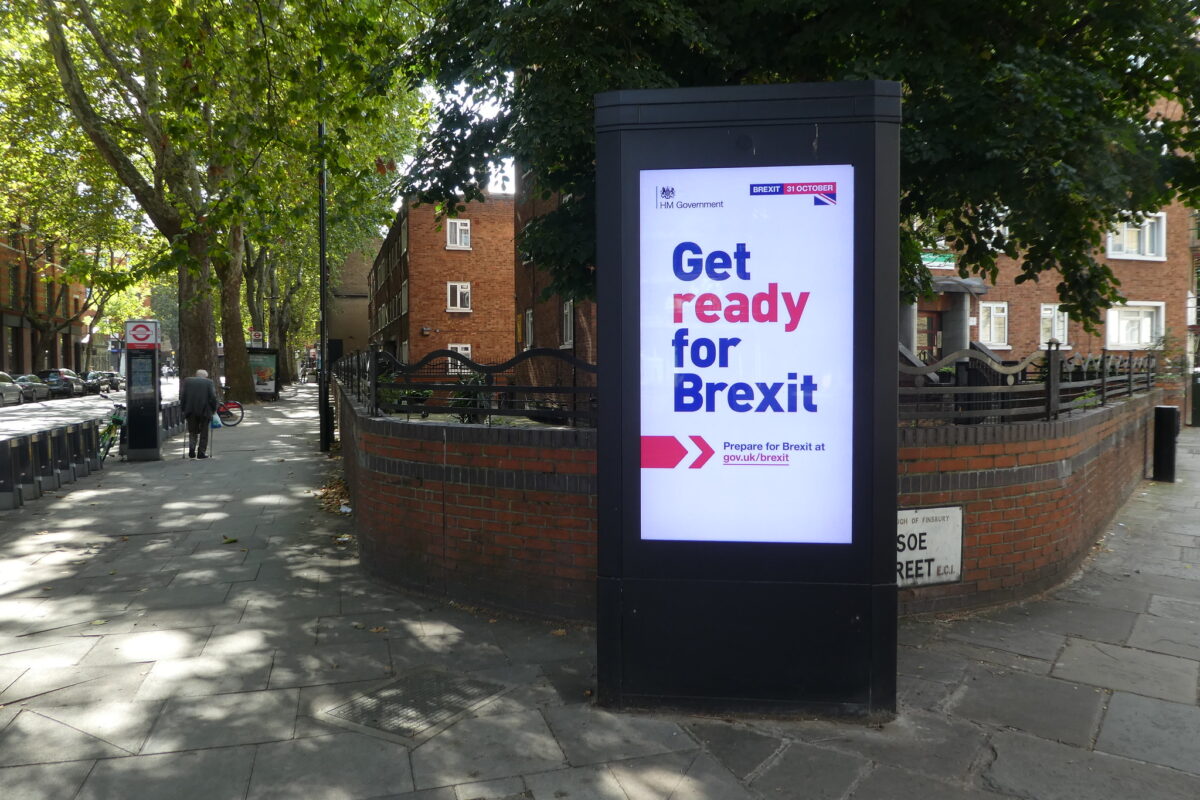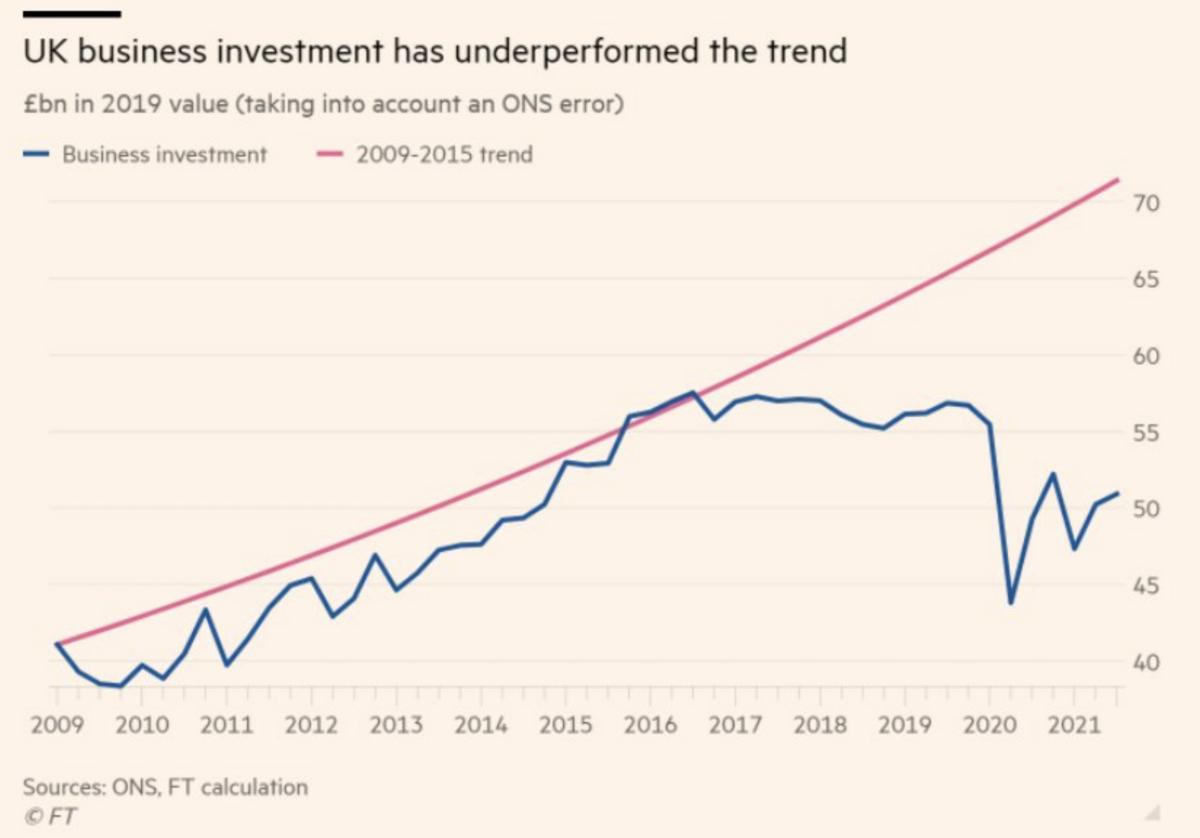Looking back on 2021 as the ‘year of hard Brexit’: four things we’ve learnt
Are the Brexit chickens finally coming home to roost?

While it might seem like it’s been going on forever, 1st January 2022 will mark the one-year anniversary of ‘Brexit proper’. Although the UK left the EU back in February 2020, this was followed by an 11-month transitional period. New post-Brexit arrangements were negotiated, eventually culminating in an eleventh hour trade deal signed last Christmas, which avoided a crash out UK exit from the single market. Even now, a range of grace periods are still in place – one of which, the introduction of checks on EU imports to the UK, concludes next week.
As is well known, the deal that the UK government negotiated represented a ‘very hard’ form of Brexit. This was a deliberate choice that attempted to maximise UK sovereignty over regulation as much as possible.
So, one year on, we have a chance to take stock of this process and review the impacts.
What have we learnt over the last year? Here we identify four of the key takeaways from 2021.
1. The negative economic projections for leaving the European single market are proving to be broadly correct
Introducing significant new barriers to trade with the UK’s largest trading partner, the EU, has predictably impacted the exports of goods. What is more surprising, however, is how closely this has followed some of the original projections for the impact of Brexit. Economists anticipated UK trade performance would be hit by about 15%. Sure enough, in the third quarter of 2021 UK good exports were down 14% year-on-year (so compared to 2020).
While the UK government argues this is a ‘pandemic effect’, comparison with other equivalent economies refutes this. Germany is still expecting overall export growth to be at 8% in 2021 and, for the first time in post-war history, the UK is expected to fall out of the country’s top 10 largest trading partners by the close of the year.
Prior to the introduction of Brexit arrangements, other indicators had already shown that the anticipated impacts of Brexit were hitting economic activity. For example, business investment (see Graph 1) has never recovered to the trend seen in 2016, illustrating the effects of the referendum on economic confidence.

There are also still many questions to ask regarding the UK’s ‘divergence’ from EU rules. Joël Reland, a researcher with UK in a Changing Europe, who has been working on its Divergence Tracker, told The Observer, while the UK government has been talking-up the benefits of lighter-touch regulation, they are still struggling with the detail:
“I think the UK is finding that it is really difficult to develop and there is more bureaucracy rather than less once you try to change everything… The cost of getting all UK companies stamped with a UK mark rather than an EU mark [can be economically prohibitive].”
So, while there are some areas where change is expected (like agriculture), in most areas of policy Brexit is still a story of pointless regulatory duplication: new structures and bureaucracies created nationally, even though many of the rules are likely to remain unchanged for the foreseeable future.
2. The UK is diplomatically isolated on the world stage – and this will also have repercussions for the economy
Two recent agreements between the EU and United States, which concern their economic relationship and cooperation, underline the new isolationism in British foreign affairs. The UK was not party to the agreement that lifted US tariffs on EU steel. Ironically, the UK’s US tariffs had originally been introduced by virtue of our membership of the EU. Yet, as a result of the US-EU deal, they no longer apply to the EU but are continuing for the UK.
Perhaps more importantly, the UK is also not included in the new US-EU Trade and Technology Council, a bilateral body for reaching agreements on regulation and supply chains. Like the steel deal, this agreement is not-so-implicitly conceived as a protectionist measure against Chinese economic and technological competition. Assuming the forum is a success, it seems likely that the UK will end up adopting regulations and policies agreed by this body, especially as the government is following the hawkish US line on China. So, despite the nominal freedom to ‘go it alone’, the UK is still set to become a rule-taker, following regulations set by America, the EU or both.
3. Northern Ireland’s fragile peace concentrates the problems of Brexit
2021 was the year the mask slipped regarding the Brexit deal’s implications for Northern Ireland. Back in November 2019, Boris Johnson infamously claimed there would be no checks on goods moving from Britain to Northern Ireland under his deal. He even added that exporters who were told to do this could phone him “and I will direct them to throw that form in the bin”. The actual implementation of the deal has, however, exposed the fact that the Prime Minister was either lying or entirely ignorant of the deal that he was trumpeting.
These issues in Northern Ireland are not going away for the simple reason that the circle cannot be squared. Given the UK’s government’s choice to pursue a very hard Brexit, there either needs to be a regulatory and quasi-customs border in the Irish Sea (in which case Northern Ireland then stays in the EU single market) or on the land border in Ireland (in which case there would no longer be an open border between the North and South).
These issues would be difficult in any situation. But they are, of course, particularly problematic in light of the history of the Troubles in the North. 2022 may be a crunch year if the UK, following David Frost’s departure from the government, pivot to implementing the protocol as it stands, possibly with some face-saving technical modifications. But this will, in all likelihood, only provide a temporary pause in the on-going argument. Under the terms of the deal, the Northern Ireland Assembly (including the Unionist parties, due to the principle of cross-community power-sharing) will have to give its formal consent to the Northern Ireland Protocol in December 2024.
4. … But Leavers are disappointed with Brexit – while Conservative voters are turning away from the party
Polling from Opinium has shown that the Leave vote is looking increasingly fragile in light of these various problems. 60% of all voters believe Brexit has gone badly or worse than they expected. But, more significantly, some 42% of Leave voters had a negative view of how it had turned out. Some 26% said it had gone worse than they expected. In contrast, only 7% of Remain voters believe that Brexit has gone better than they expected. This very clear difference shows, broadly, that the Remain vote is still intact while the Leave vote has started to dissipate.
In UK politics more widely, the various polling companies seem to agree that the Conservatives are well behind in second place. Their voters have grown disillusioned in light of the ‘one rule for us’ Downing Street party revelations. Of the 23 polls published since Allegra Stratton’s resignation on the 8th December not a single one has shown the Conservatives in the lead. Looking at past polling, you would have to go back to October 2014 to find similar sustained leads for the Labour Party. This, of course, should provide a warning not to get too excited given the outcome of the 2015 election. Still, 2021 might have been the year that UK public opinion finally starts to move.
December 29, 2021
Brexit Spotlight is run by Another Europe Is Possible. You can support this work by joining us today. The website is a resource to encourage debate and discussion. Published opinions do not necessarily represent those of Another Europe.





